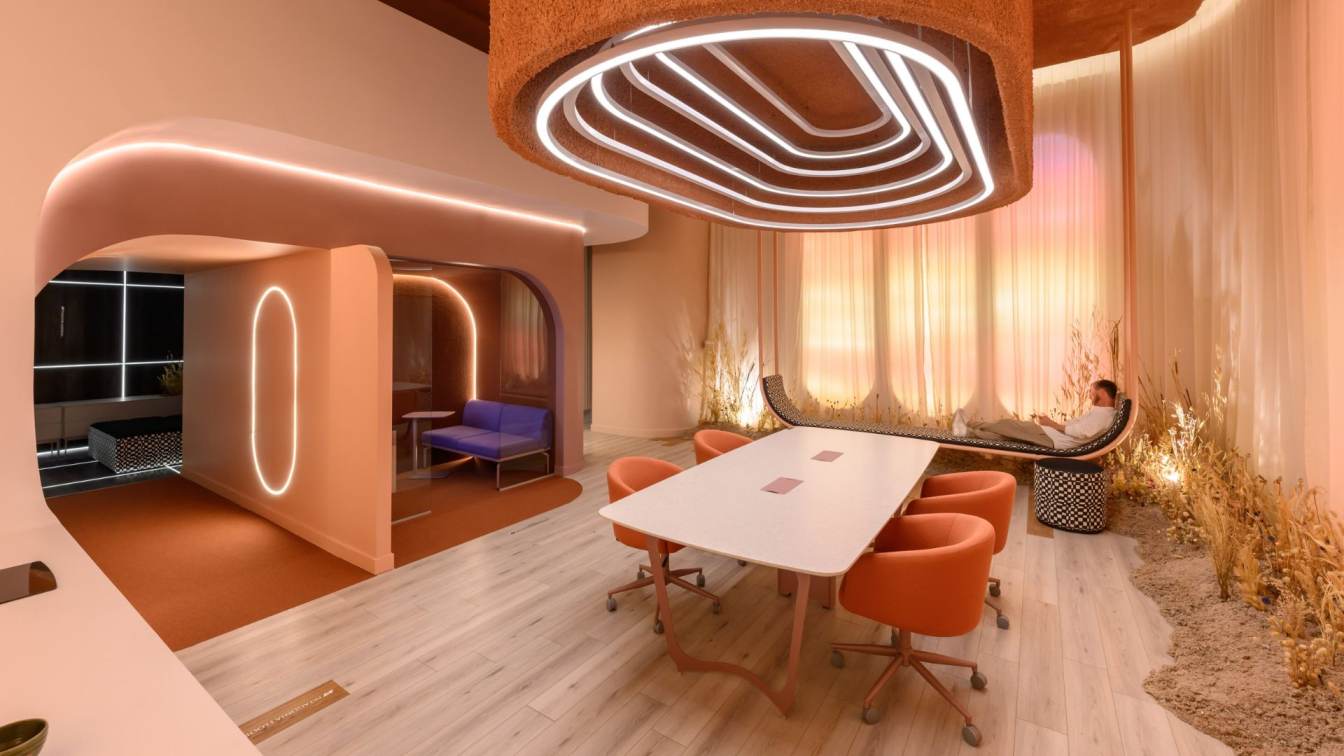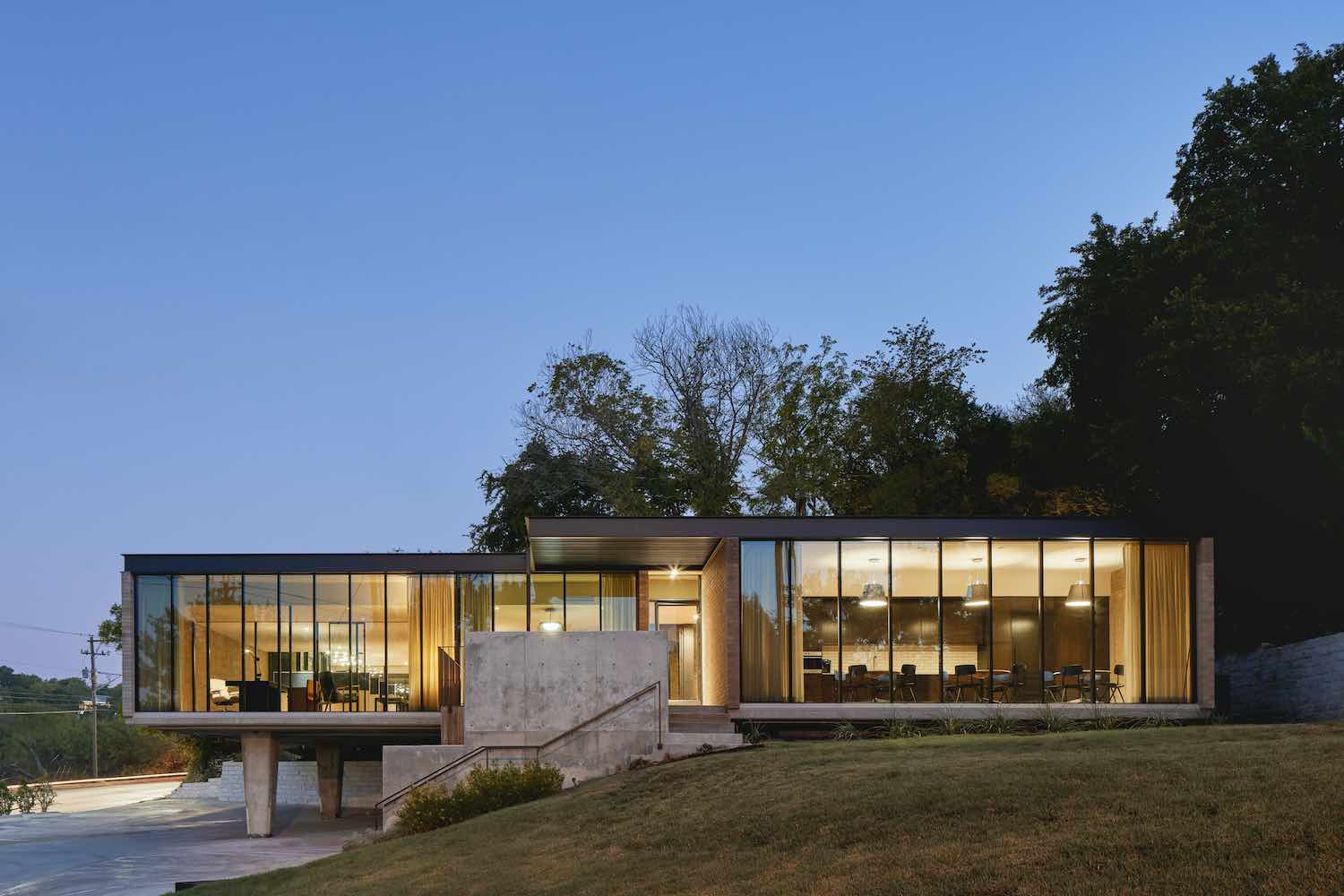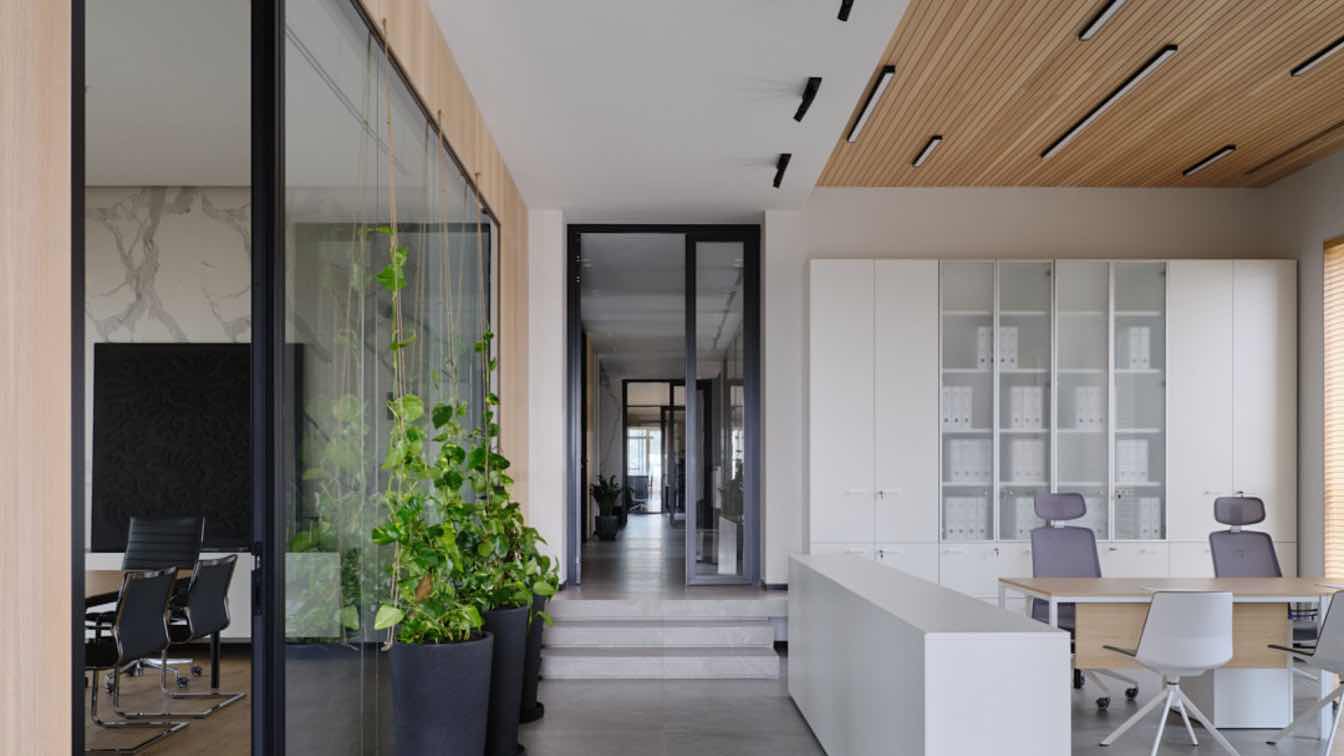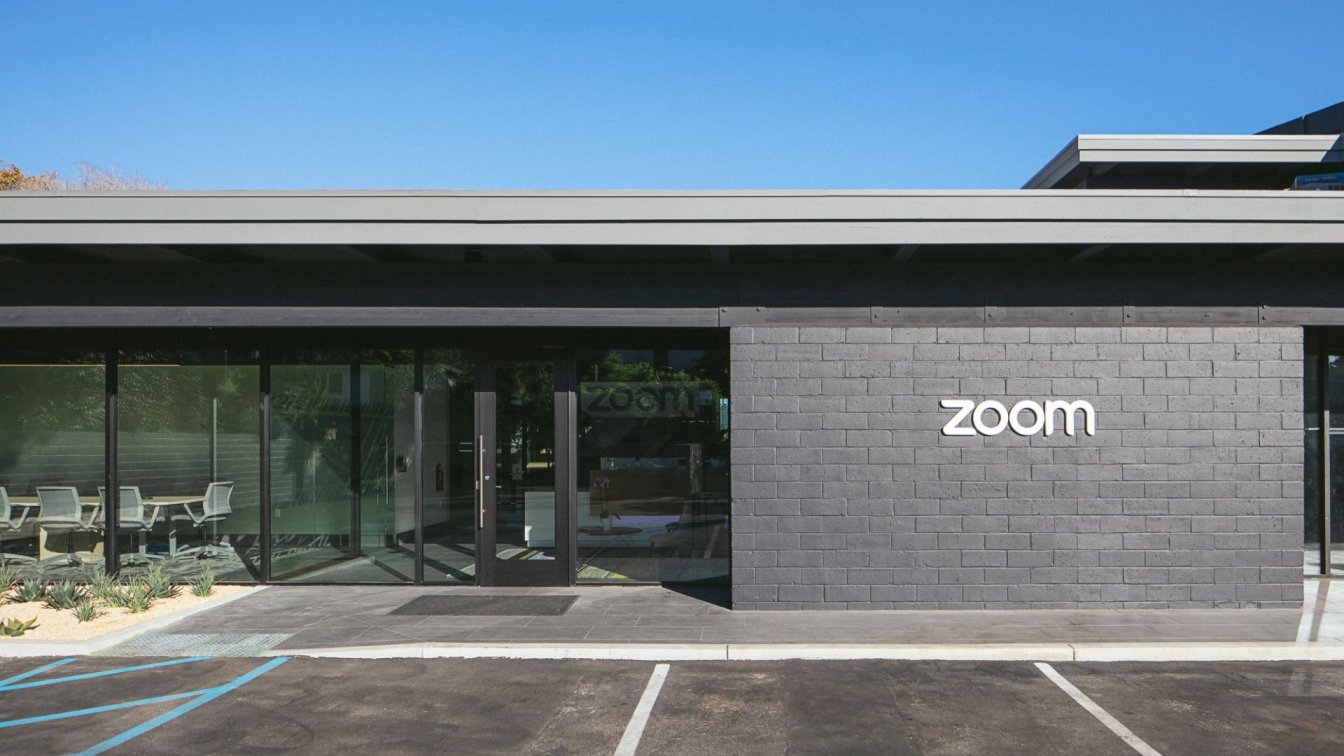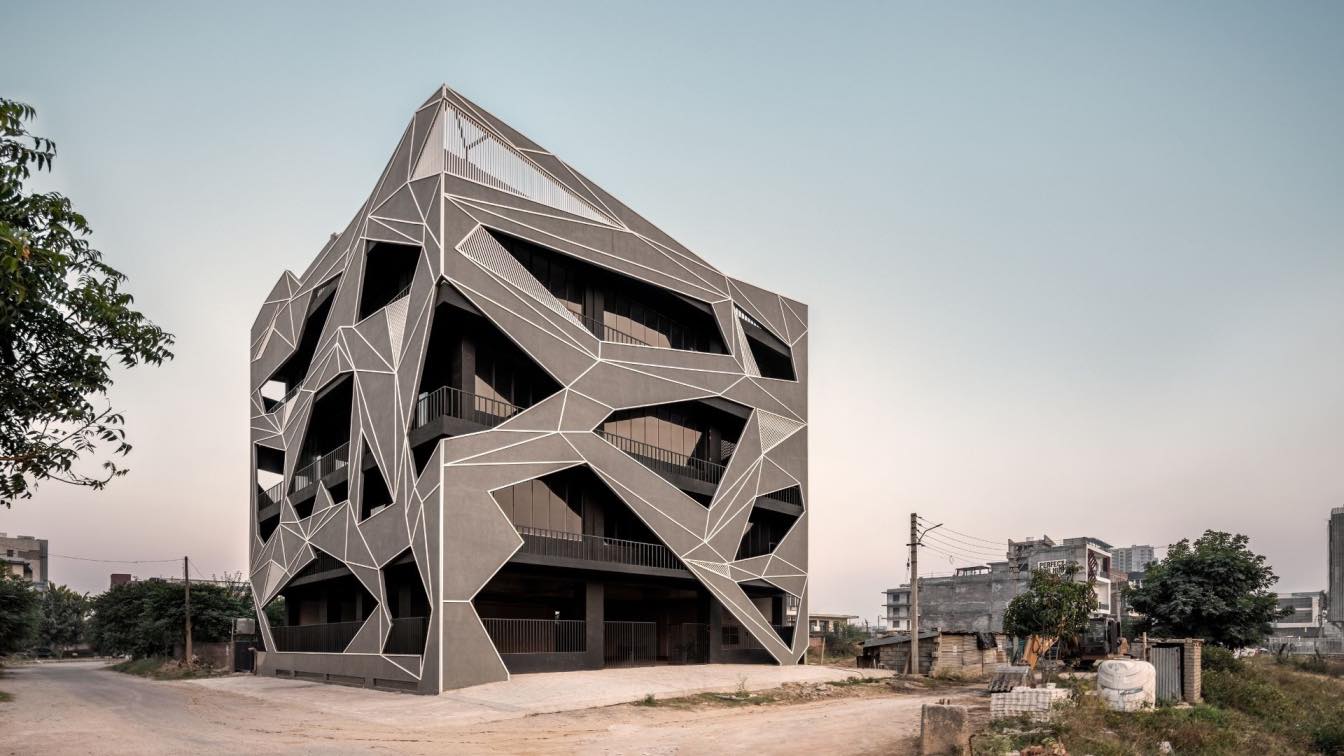Estudio Ebras & Hause Möbel: "Green Home Office" is based on two main ideas: hybridization and sustainability. In terms of hybridization, it seeks to merge the universe of corporate architecture with residential architecture, creating a flexible space that can be both a home and an office, depending on the user's needs and perspective. The project was created for the architecture and design exhibition Casa FOA 2024, in Córdoba, Argentina. The event, visited by over 40,000 people, took place in a building under construction called "Pocito", a complex of 137,000 m² that includes three 36-story towers, a shopping center, offices, and parking. Upon entering the home office, visitors pass through a barrel vault that compresses due to its low height, leading to a bifurcation that leads to two spaces: the immersive space and the central area.
The immersive space features a luminous grid that simulates the grid of virtual reality and includes, on one side, a desk, and on the other, a chaise longue for resting and transporting us to a natural environment in virtual reality. This way, the real and virtual worlds are blended, integrating elements of both to form a hybrid reality, understanding that in the future our interaction with nature may primarily be virtual. Upon entering the central area, a change in scale is perceived due to its dimensions and height. This space is centered around the meeting table, framed by a large luminaire hanging from the ceiling. On one side, there is a kitchen that once again alludes to the blurred boundary between home and office, while on the opposite side, there is a large hanging bench for contemplation.
The windowless space posed a great challenge for the Ebras studio, who created a series of oval windows in collaboration with a light plastic artist, providing a glimpse of an urban sunset outside. The dry vegetation that runs along the perimeter of the space recreates a mountainous, wild, and arid landscape typical of the area. The acoustic box allows for privacy to make a call, work with a laptop, or, within a home-like setting, provides recreational space. Sustainability is key in this project. Therefore, a carbon footprint analysis was conducted throughout the design, exhibition, and dismantling processes. To neutralize the footprint, native trees were planted in Champaquí Hill, in collaboration with the "Fundación Sembradores de Agua", making the "Green Home Office" an example of environmental responsibility.

































